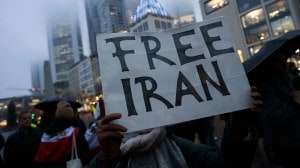The Valley is elsewhere
It takes a war in Kargil or a hijacking in Kandahar for the nation to be reminded that all is not well with Kashmir. Even then it is easy ...

It takes a war in Kargil or a hijacking in Kandahar for the nation to be reminded that all is not well with Kashmir. Even then it is easy to forget that most Kashmiris have lived lives, for the last decade, similar to the seven day ordeal of the hostages aboard the hijacked flight IC-814: terrorised, in deep distress and uncertain about the future. There is, of course, one major difference. While the whole nation was galvanised by the hijacking, and virtually everyone in the country was praying for the safety and security of the passengers, the Kashmiris are a forgotten people: on the fringes of national consciousness, and every new killing in the valley is today only an impersonal statistic rather than a human tragedy warranting close media attention.
Under the circumstances, it is easy to forget also that over 20,000 Kashmiris have died violent deaths the last ten years; that over three lakh Kashmiris are refugees within their own country; that Pakistan8217;s role in spreading turmoil and terror in thestate has been proven beyond doubt; that the percentage of those who voted in Jammu and Kashmir in the last parliamentary elections was the lowest in the country; and that the state is currently ruled by an administration that would make Laloo Yadav8217;s Bihar look like Plato8217;s Republic. And, most important, that most Kashmiris today, despite Pakistan8217;s hardest efforts, have nothing to do with the militancy and yearn for, above all, peace and stability. Yet, most pitiably, there is no real Kashmir policy that guides the central government8217;s actions. For more than a decade now, Kashmir has suffered from the same bureaucratic and political inertia that manifested itself most dramatically in the colossal incompetence at the Amritsar airport during the recent hijacking.
As is obvious, there are two aspects to the mess that exists in Kashmir today: the problems created by Pakistan and the problems between India and its people in the state. While the two are not mutually exclusive any prudent political initiativemust necessarily separate the two. Dealing with Pakistan and the proxy war it has unleashed in the Valley, surprising it may seem, is the easier part of the problem. But its success will depend on the manner in which New Delhi is able to succeed in a policy to win back the hearts and minds of the Kashmiri people.
Despite the recent escalation in violence and the fillip given to militancy by New Delhi8217;s capitulation at Kandahar, there exists an opportunity for an enlightened political initiative towards the state of Jammu and Kashmir. It is the mood of the people in the state, and especially in the Kashmir Valley, that adds weight to the need for such a policy.
Three indices are particularly relevant. First, today there is an overwhelming Kashmiri sentiment against violence, irrespective of its origin. Militancy has lost a great deal of popular legitimacy. 8220;Peace with dignity8221; is the slogan that perhaps most suitably captures the prevailing mood of those who live in Kashmir. Moreover, there is hardly anysupport for foreign militants.
Indeed, reports that Pakistanis and Afghans belonging to the dreaded Lashkar-e-Taiba may be in control of the militancy, has generated deep discomfiture among significant sections of the Valley.
Second, there is an equally strong disillusionment with Pakistan. The political and social conditions prevailing within Pakistan have not gone unnoticed in the Valley. The virtually total absence of a civil society, the deep ethnic conflict in the Sindh and other areas, and the almost Orwellian control that is exercised in Pakistan-occupied-Kashmir, have left a deep impression on the Kashmiris. The coup by General Pervez Musharraf has strengthened the growing feeling that a country whose commitment to democracy is so weak and imperfect can hardly be a real supporter of the democratic aspirations of the people of Jammu and Kashmir.
Finally, there seem to be genuine, all-pervasive, desire to recover the social capital lost in the last decade, and to restore Kashmir8217;s traditionalsociety based on ideas of peaceful coexistence and the common syncretic identity of Kashmiriyat. While it will not be easy for Kashmiri Pandits to be rehabilitated in the Valley, it is clear that the ordinary Kashmiri Muslim recognises, more than ever before, the deep cultural and social loss that has been caused by the departure of this important minority community.
New Delhi could even now capitalise on this window of opportunity, which is fast closing, by unilaterally announcing a package to restore political autonomy to the state as well to ensure its economic revival. The former need to be done through detailed negotiations, or through an amendment of the Constitution, but given Jammu and Kashmir8217;s special status 8212; can be simply implemented through a Presidential ordinance.
Most observers do not seem to recognise that it is possible to strike a harmonious balance between the need to integrate Jammu and Kashmir within the national mainstream and the state8217;s demand for autonomous self-governance. Ifthis balance is struck, Jammu and Kashmir could become a model of 8220;co-operative federalism8221;, a special model that could be gradually applied to other states of the Union.
New Delhi should unilaterally declare the Line of Control as the international border. While such a move by India may mean going against the unanimous parliamentary resolution that calls for reclaiming the territory under Pakistan8217;s occupation, a permanent division of Jammu and Kashmir along the present Line of Control, with minor adjustments if need be, is for a variety of reasons the only realistic, practical and just settlement of the problem that has defied a solution for more than half a century. True, this may not leave New Delhi with a bargaining chip in future negotiations. The point, however, is to realise and recognsise that there should now be no question of talking with Pakistan about Kashmir and the issue should no longer figure in any talks with Islamabad as and when they occur.
Also, New Delhi must allow access to anyNGO or group of eminent people who want to observe the election in Jammu and Kashmir or any other part of India. This will satisfy the demand of the All Party Hurriyat Conference, which apparently has agreed to participate in the elections if they are monitored by international observers. Simultaneously, New Delhi must announce a general amnesty for militants who give up arms and are willing to join the political process.
All these unilateral initiatives will, of course, not resolve the problem of terrorism, or end the problem of foreign militants. But then the battle against terrorists will reduce itself to being a law and order problem that will be fought primarily by ordinary Kashmiris rather than security forces from outside the state. Will the government show the political will and imagination to articulate such a policy?
The writer is an associate professor of international studies at JNU
- 01
- 02
- 03
- 04
- 05































